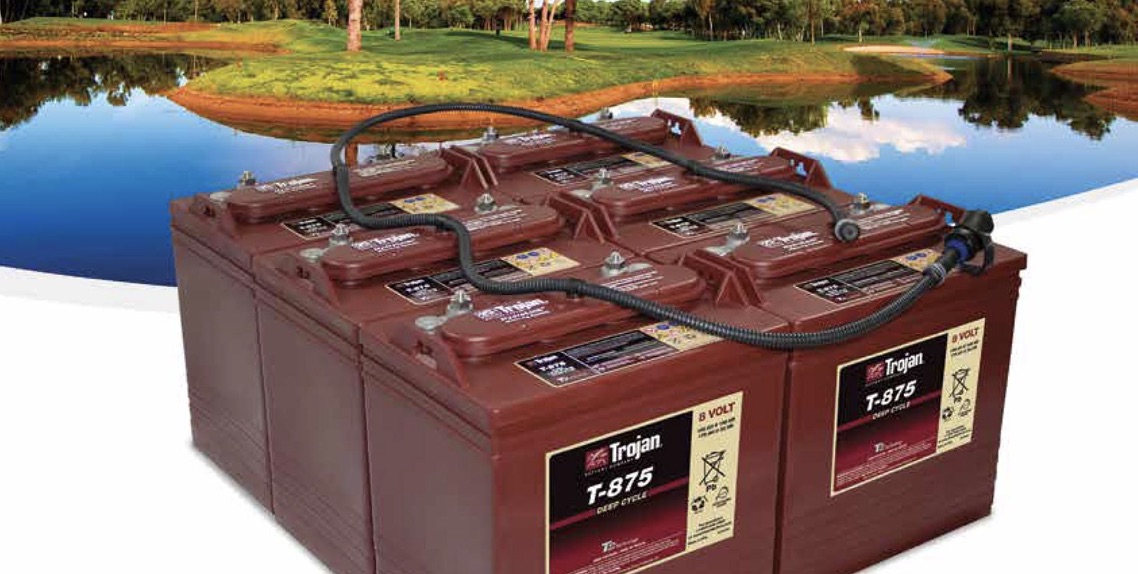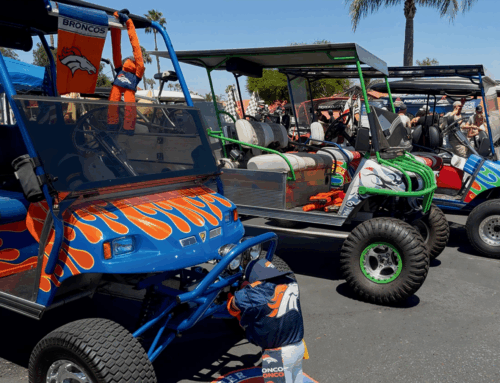Deep-cycle flooded lead-acid batteries continue to be the most popular batteries for golf and personal transportation vehicles (PTVs) because they are reliable and
cost-effective. But improper maintenance and usage can cause corrosion and sulfation, the formation of lead sulfate crystals on the battery’s plates. This can impact battery performance and life. Fortunately, both are largely preventable with regular maintenance and proper charging.
Corrosion occurs primarily during charging when the battery releases hydrogen gas, water, and acid. This can settle on the battery’s components, leaving a white, crusty material around the terminals and cables. If not removed, this corrosion will restrict energy flow through the terminals, affect performance and damage the battery.
Frequently check your battery terminals. If you spot corrosion, immediately clean it away, following the directions in your owner’s guide.
Avoid Charging Errors
Improper charging can also cause corrosion and sulfation.
Overcharging accelerates the corrosion of the positive plates and increases the amount of water loss that occurs during charging. Make sure your battery charger is functioning correctly, is adequately sized for the battery set, and has a charge algorithm recommended by the battery manufacturer.
Undercharging, on the other hand, can cause sulfation. Both can diminish performance and shorten battery life.
Don’t Over- or Under-Water Your Batteries
With overwatering, the electrolyte can overflow the cells and cause corrosion. This often occurs when watering batteries that are not fully charged.
Underwatering can cause sulfation, as the water lost during charging must be replaced. Follow your manufacturer’s recommendations for watering
Check fill levels and follow the directions for watering and charging in your owner’s manual, and never let the electrolyte fall below the plates.
Single-point watering systems, such as Trojan’s HydroLink™ Battery Watering System, take the guesswork out of watering. The system waters Trojan batteries in seconds and helps prevent damaging over- and under-watering.
Watch Your Depth of Discharge (D0D)
DOD is the amount of charge left in your battery. Most battery manufacturers recommend that flooded lead-acid batteries never go past 50% D0D. Charge your batteries at the first available opportunity after each use. Higher DoD can cause corrosion.
Final Thoughts
While these maintenance mistakes may seem like small issues, they are not. Improper maintenance can damage or destroy your batteries and reduce the return on your investment.
To learn more, visit Trojan Battery Company or find your Local Authorized Trojan Dealer.






